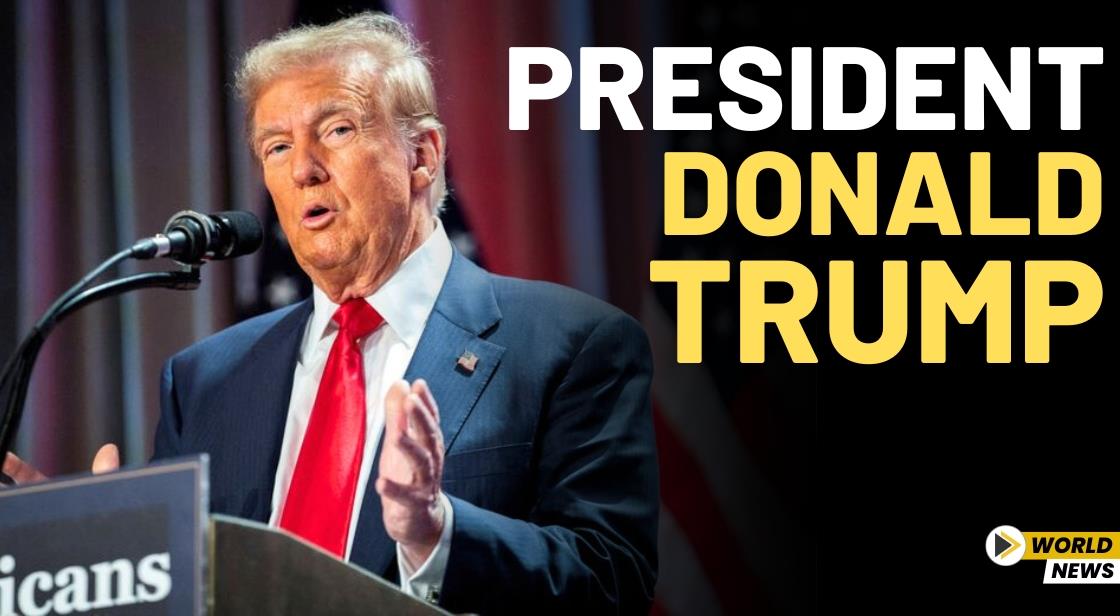Donald Trump Threatens Tariffs on India and China Over Trade Policies

News Synopsis
During a press conference on Friday, US President Donald Trump announced his intention to introduce reciprocal tariffs on countries such as India and China. He stated that the United States would implement tariffs equivalent to those imposed by these nations on American products.
US President Donald Trump stated:
"We will soon impose reciprocal tariffs -- they charge us, we charge them. Whatever a company or a country, such as India or China, charges, we want to be fair; hence, reciprocal."
He further noted that this policy was under consideration before the COVID-19 pandemic disrupted global trade plans.
India’s High Tariff Structure Under Scrutiny
Trump has frequently criticized India’s high import duties, labeling it a difficult market for American businesses. Just last week, before a bilateral meeting with Prime Minister Narendra Modi, he remarked:
"They have the highest tariffs... It's a hard place to do business."
This comment followed Tesla CEO Elon Musk's meeting with PM Modi, where discussions likely involved Tesla’s expansion in India. Trump speculated that Musk’s visit was linked to navigating India’s tariff policies, which he described as a major challenge for foreign businesses.
Harley-Davidson’s Tariff Struggles: A Case Study
Trump reiterated his past criticisms of India’s trade policies, citing the Harley-Davidson case as a prominent example. He stated:
"Traditionally, India is right at the top of the pack pretty much. There are a couple of smaller countries that are actually more, but India charges tremendous tariffs. I remember when Harley Davidson couldn't sell their motorbikes in India because of the fact that in India, the tax was so high, the tariff was so high, and Harley was forced to build."
For years, India imposed 100% import duty on Harley-Davidson motorcycles, forcing the US-based company to set up local manufacturing to access the market. While India later reduced the tariffs, Trump believes such policies have historically discouraged American companies from operating freely.
How Reciprocal Tariffs Could Impact Global Trade?
Trump’s push for reciprocal tariffs aligns with his "America First" policy, which aims to reduce trade deficits and promote fair competition. However, imposing new tariffs on India and China could have the following consequences:
1. Strained US-India Trade Relations
-
India is one of the largest trade partners of the US, with bilateral trade exceeding $190 billion in 2023.
-
New tariffs could provoke retaliatory measures, affecting exports from both sides.
2. Impact on US Companies Operating in India
-
Companies like Apple, Tesla, and Boeing could face higher costs if India imposes counter-tariffs.
-
US tech and pharmaceutical firms, which rely on the Indian market, may see revenue declines.
3. Increased Trade War Tensions with China
-
The US-China trade war has already led to billions in tariffs, impacting global supply chains.
-
Additional tariffs could further escalate economic tensions between the two superpowers.
Conclusion
Donald Trump’s latest announcement on reciprocal tariffs marks another chapter in US trade policy, specifically targeting India and China. While he argues that this move ensures fairness in trade, the impact on US-India relations and global markets remains uncertain.
India has long been criticized for its high import duties, as seen in the Harley-Davidson case, while also being a lucrative market for companies like Tesla and Apple.
The US-India trade relationship has seen growth in recent years, with $190 billion in bilateral trade in 2023. However, Trump's aggressive tariff policies may risk damaging diplomatic ties and provoking retaliatory measures.
As the 2024 US elections approach, Trump’s stance on trade and tariffs will likely be a major discussion point. Whether this move strengthens US industry or triggers another global trade dispute remains to be seen.
You May Like









